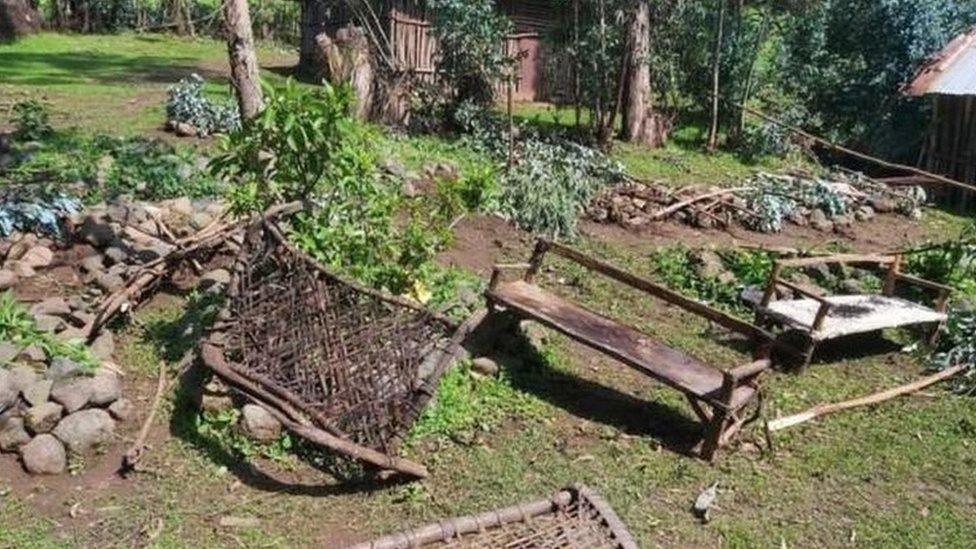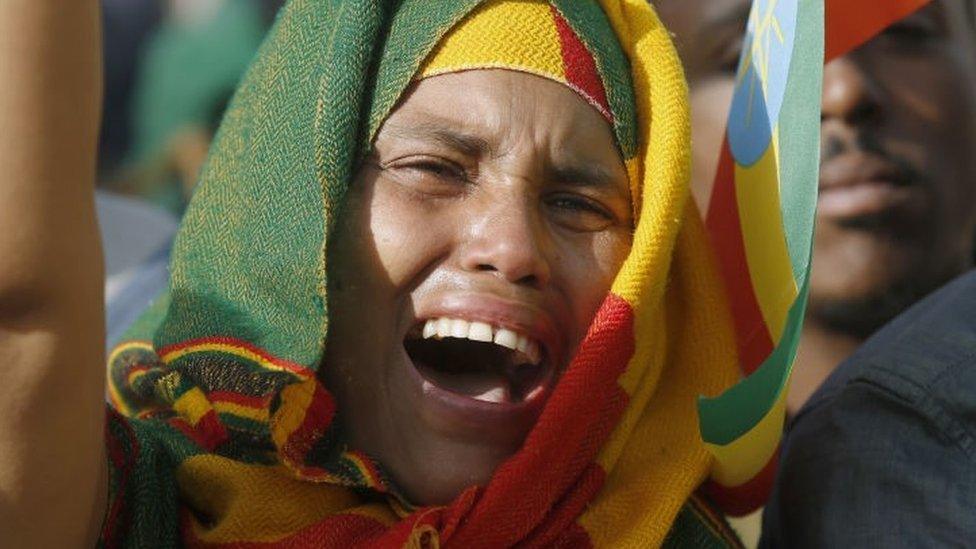Ethiopia's Tigray crisis: Mass graves found - Amhara officials
- Published

Officials say Tigray fighters committed the atrocities over a two day period
Ethiopian officials say they have found the graves of at least 119 civilians after rebel forces withdrew from a village they had occupied.
Tigray's rebel forces have denied any responsibility, calling the accusations "fabricated".
One local official in the Amhara region which borders Tigray described the dead as "innocent farmers, priests, children and women".
The BBC cannot independently verify the allegations.
Meanwhile the Sudanese government has summoned the Ethiopian ambassador in Khartoum over the appearance of almost 30 bodies that washed up on the shores of a river from Ethiopia's Tigray region.
Sudan's Ministry of Foreign Affairs says that the bodies belong to members of the Tigrinya ethnic group.
This follows allegations of mass killings in the north-western Ethiopian city of Humera, which local officials denied.
There is currently a communications blackout in Tigray, which has been devastated by a 10-month conflict between the rebel Tigray People's Liberation Front (TPLF) and government forces. The UN has warned of famine on a massive scale unless more aid is allowed into the region.
The fighting spread to Amhara after the TPLF recaptured most of Tigray from government forces in June and advanced into neighbouring areas.
Amhara official Ato Sewnet Wubalem said the 119 bodies had been reburied at a church compound.
Local officials and witnesses who spoke to the BBC said rebel fighters committed the atrocity after losing territory during 10 days of heavy fighting in the farming village of Chena.
The TPLF says it has no reported history of targeting civilians, and called for an independent investigation.


An Amhara administrator told Reuters news agency the number of dead bodies might be higher than initial figures show.
Residents said some people are still missing.
One local hospital representative told the AFP news agency that doctors were still treating wounded people.
"We have received close to 35, 36 civilians but I am not sure they are all from the Chena massacre. Most of them have gun wounds," said Ashenafi Tazebew.
He said that some of the injured "are asking to go to the funerals" of dead family members, even though they need treatment.
Both the national military and Tigray rebels have previously been accused of atrocities including rape and mass civilian killings.
In July the United Nations warned that 400,000 people were living in famine-like conditions as a result of the violence.
The TPLF was the governing party in Tigray, until federal forces ousted them in November 2020 after they seized a military barracks.
The Ethiopian government has designated the group a terrorist organisation - a label which they reject.
More on the Tigray crisis:
Related topics
- Published30 August 2021
